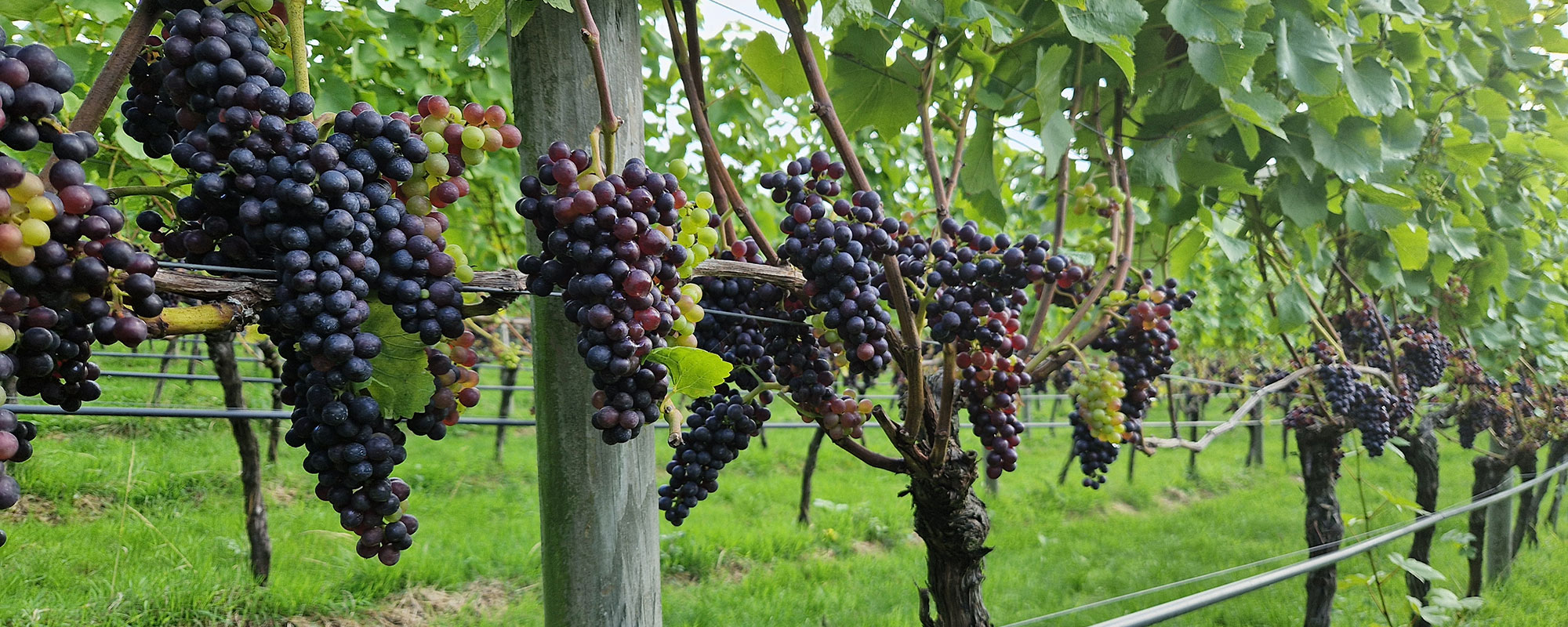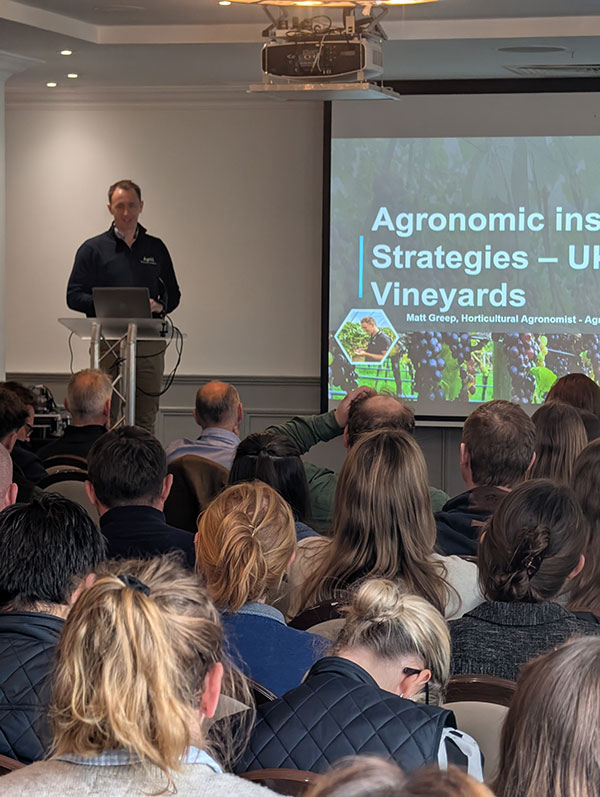
A changing climate brings opportunities and risks for fruit growers. Resilience will be central to managing both, explains Matt Greep, Agrii horticulture agronomist.
Exploiting the opportunities brought on by a changing climate while mitigating the production risks that will inevitably come with it was the theme for the NextGen fruit conference on 27th March. How as growers and advisers we respond to these changes will shape the future of our industry.

At the headline level, an increase in average temperatures of 1-1.5C over the next 21 years seems less than significant. But stop to consider the opportunities this presents and there is an undeniable sense of excitement. This is especially evident in the viticulture sector. The UK is well-placed both geographically and economically to capitalise on this opportunity. Our annual rainfall is expected to remain broadly consistent with that of today although we are warned that more of it is likely to come in intense downpours that result in flash flooding, especially in low-lying and urban areas.
Warmer temperatures will enable the sector to expand further north and look beyond the sparkling varieties that dominate to more ‘still’ wines. Other sectors too will benefit from this positive outlook. Only about 40% of the apples consumed in the UK are grown here. There is scope to increase this although any expansion will be market dependent. This presents opportunities for soft fruit too. The UK already meets 100% of demand for strawberries from home-grown product during the domestic season but this season is expected to expand which will result in a larger market for UK growers. A warming climate will also create more opportunities for home-grown blueberries, raspberries, blackberries, cherries and table grapes.
There are, of course, challenges to overcome, notably water and how as a country we balance the competing demands of water for food production, industry and households. It is estimated that for every 1C increase in temperatures, water demand increases by 7%.
Managing the impact of a warmer climate will involve long-term planning. It may be necessary to relocate some of the more vulnerable activities while investment in hardier varieties and more efficient irrigation systems are perhaps inevitable. There will also be the need for innovative solutions to issues we are yet to fully understand, such as managing the micro-climate crops under cover without increasing the pest or disease pressure.
Facing up to the effects of climate change, both the positive and the potentially negative, will involve resilience. What this means beyond the obvious components such as people, capital, land and water warrants further consideration. There are also market requirements and regulatory changes to consider too.
Consumers are generally unwilling to pay more for sustainability, but they expect it, nonetheless. Integrating practices considered more sustainable is not without its complexities but if we are to capitalise on these opportunities, growers must show a willingness to support and educate consumers, adopt innovative practices, and demonstrate efficient supply chain management. Many already are but we cannot rest on past successes.
Agrii is a long-standing sponsor of the NextGen Fruit Group and Agrii horticulture.
Agronomist Jason Steels currently sits on the committee: nextgenfruitgroup.co.uk
Contact our fruit agronomists for more information: jason.steels@agrii.co.uk / matt.greep@agrii.co.uk


